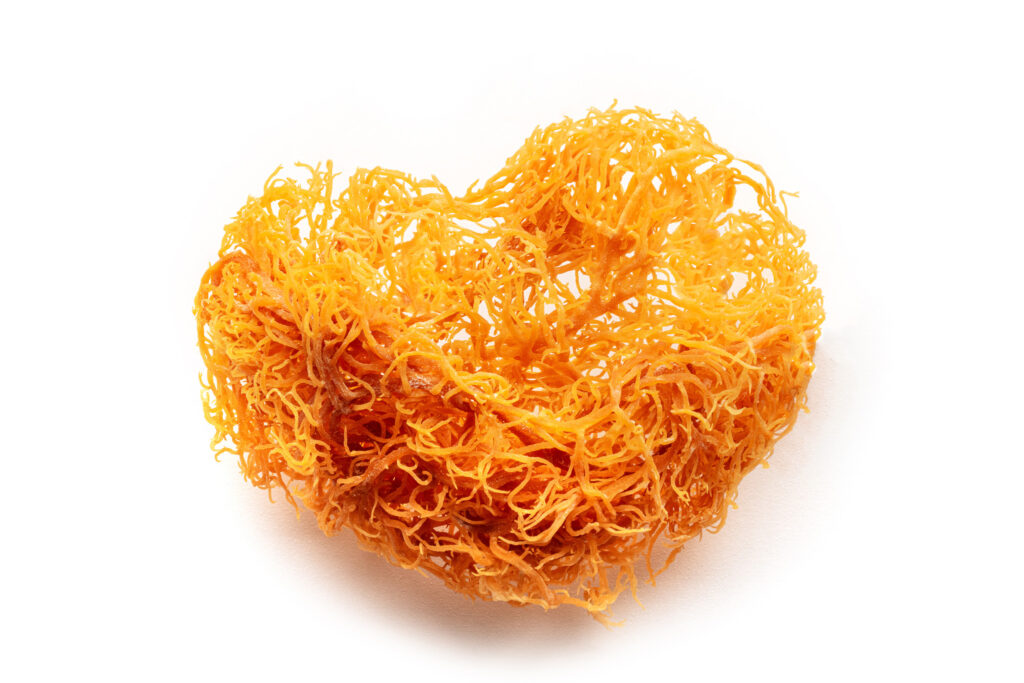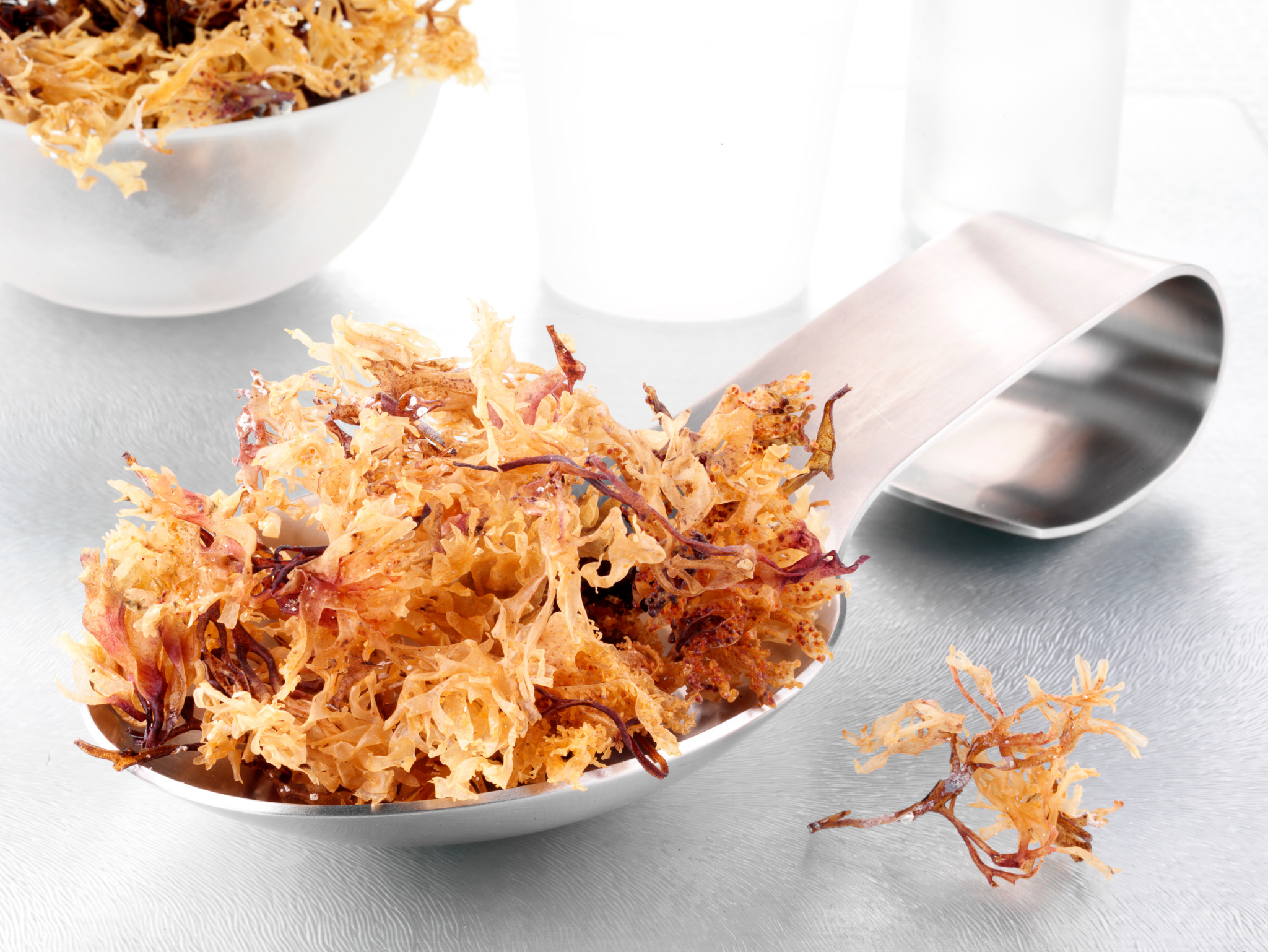Sea moss, sometimes referred to as Irish moss or red seaweed, is a kind of seaweed that grows in tidepools and inlets all year round. It can be found on the coasts of the British Isles, North America, and Europe.
Carrageenan is a jelly-like material that is frequently used as a thickening in the food industry. It is typically extracted from sea moss. It can be found in toothpaste, shoe polish, baby formula, ice cream, cottage cheese, jelly, and nondairy milk. Leather can also be cured with carrageenan.
People are clamoring to incorporate this plant into their skincare and food routines since it contains an abundance of minerals. Strengths:According to Parker, a lot of the claims made about sea moss aren’t always untrue, but further study is needed to validate these effects on specific people.
The tufts of sea moss have delicate, fan-shaped fronds. It is claimed to have numerous health benefits, the majority of which have not been properly investigated. It comes in a variety of colors, ranging from greenish-yellow to dark purple. You can boil the algae and then add milk and honey to make a drink. It is regarded as a male aphrodisiac in several nations.
According to preliminary research, sea moss may even be able to prevent the body from catching salmonella and strengthen the immune system.

According to one study, sea moss can inhibit the growth of S. enteritidis, the human salmonella-causing bacteria. However, the impact has not been replicated in humans or animals, and this is a very early study. To find out if sea moss can prevent or treat human salmonella, more research is required.
May help prevent Parkinson’s disease
The second most prevalent degenerative illness among older persons is Parkinson’s disease. It is incurable and results in tremors, stiffness, and slowness of movement. However, preliminary studies suggest that sea moss might be able to prevent the illness from getting worse.
An extract from sea moss was found to lessen stiffness and slowness of movement in a worm-based investigation. This may indicate bright futures for Parkinson’s patients. To find out if sea moss benefits people in the same way as it benefits worms, more investigation is necessary.
May benefit thyroid health
Because sea moss is high in iodine, it may be beneficial for those who suffer from hypothyroidism, a disorder in which the thyroid hormones that control metabolism are not produced in sufficient amounts by the body. The process of metabolism converts the food you ingest into energy and controls bodily functions like breathing and heart rate. However, especially if you’re already taking medicine for your hypothyroidism, see your doctor before using sea moss for management.
Risks and possible side effects
While there are numerous health advantages to Irish moss and it can enhance your body’s general performance, research has indicated that carrageenan may have side effects.
Carrageenan has the potential to transform into “degraded carrageenan,” also known as poligeenan, which is known to be poisonous and may result in a number of health issues. The theory that your body can change carrageenan into poligeenan is unsupported by scientific data. However, some seaweeds naturally contain poligeenan.
May result in colon and stomach cancer
Lastly, polyps with the potential to develop into cancer have also been connected to poligeenan. Particularly when ulcers are discovered, poligeenan seems to induce digestive tract issues that result in cell alterations frequently observed in malignancies.
It is noteworthy that carrageenan exhibits none of these properties. Carrageenan is safe to use as a food additive, according to the FDA, and the body cannot establish the conditions necessary for it to change into poligeenan.
Overconsumption of sea moss can also result in unsettled stomach symptoms like nausea, vomiting, and diarrhea.
Heavy metals
Toxic elements from the water in which it grows, such as arsenic, mercury, and lead, can be absorbed by sea moss. When used in excess, these can be harmful.
There are a lot of possible advantages to sea moss, however the precise advantages are yet unknown. Consult your healthcare practitioner before including sea moss into your diet. On whether or not it would be a good addition to your diet, they can tell you further details.
